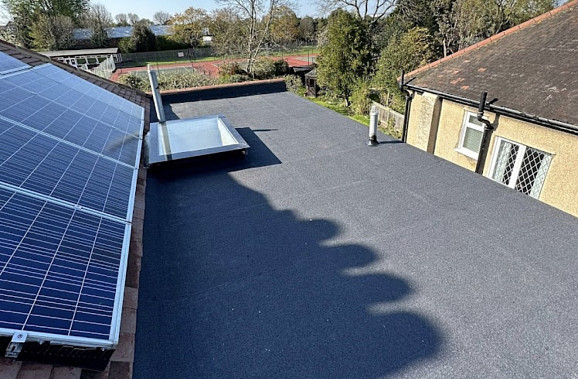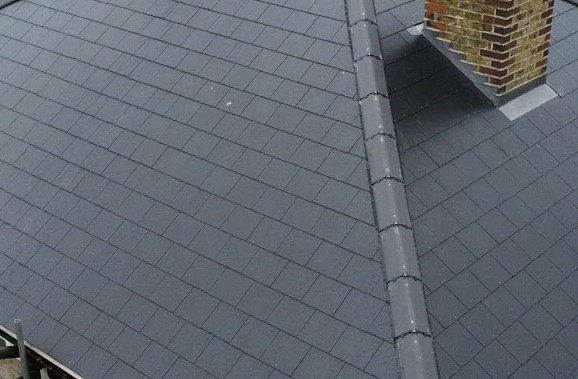Installing a new roof is a large project that requires extensive planning. Many factors must be thoroughly considered, such as budget, timescales, type of roof, materials, and planning regulations.
Investing in a new roof is a large undertaking that should be meticulously researched. In this article, we aim to walk you through this process and share our experience within this industry to help you make an informed decision.
Quick Intro About Flat Roofs
A common sight throughout the UK, usually categorised as having a slant of less than 10 degrees. Flat roofs have both pros and cons, which are discussed in more detail in the following article, 'Pitched or flat roof'' At Knights Roofing, we have a lot of experience maintaining, repairing, and building this type of roofing, and we will share some of the insights we have gained over the years to assist with installing a flat roof.
The three core benefits often associated with flat roofs are the space and opportunities they create, the fact that they are usually a cheaper constriction method, and, lastly, that they are often easier and quicker to construct.
Preparation Is Key
Many of the criteria below are not only just related to flat roof construction. They can also be applied to other roof-related projects. Some areas that are definitely worth investigating include:
- Time of year: Depending on the urgency, it is probably not a good idea to replace a roof during the height of winter. This is especially true for pre-existing buildings where valuable items are potentially exposed to the elements. It is advisable to select a time of year when the weather is favourable, with little rain and wind.
- Materials: Have you researched the materials you would like to use? Have you considered the insulation options, environmental considerations, stock levels, and associated material costs?
- Access: Is there ample access for the builders to carry out their tasks? Will they be able to park to offload bulky and heavy materials?
- Budget: It is important to have a good idea of the costs involved because if you underestimate, you might not have the funding available to complete the project. Some of the cost-related areas you will need to consider include project inspection work and all the required materials (roof type, insulation, flashing, sealants, supports, scaffolding, skips, permits, etc.).
Building Regulations & Permits
It is imperative to ensure you comply with all building codes and regulations. Non-compliance can be extremely expensive, severely delaying or even stopping the project. Some criteria that would be wise to look into include:
- Local building regulations:
- Building Regulation Compliance Certificate.
- Approval of building regulations.
- Planning permission with the local authority.
- Fire safety regulations.
- Further information on building regulations can be found on the government website. This is not an area to ignore. Years down the line, it can come back to haunt you.
It is important to ensure you keep all documentation and certificates. By employing the services of a reputable roofing company, they can address and confirm all the above areas for you.
Materials & Warranty
If you are using a roofing specialist, it is important to understand the guarantees and warranties they offer before signing any contracts. You should look beyond the manufacturer's warranty, which covers issues such as defective roofing material.
Some areas that you should further investigate include:
- What other assurances does the builder offer?
- How long do they guarantee their workmanship?
- How will they address any issues that arise?
- Drainage issues.
- Any punctures or tears.
- Bubbling of the material.
It is important to appoint a reputable roofer, look into their reviews and testimonials, and contact previous clients for feedback.
Selecting A Roofing Professional
By selecting a specialist flat roofing company, many of the above issues and variables become the roofer's concern. They can deal with council regulation, material allocation and collection, safety aspects, waste removal, and project management. This article includes some areas you should look into before selecting a roofing specialist, essential questions to ask a roofer.
Conclusion
The success of installing a new flat roof often depends on ample planning and research. Every aspect, from selecting the appropriate time of year to choosing the right materials and ensuring compliance with local building regulations, must be carefully investigated to help avoid potential issues. Employing a reputable roofing company's expertise can help bypass common pitfalls and mistakes. Please let us know if you have any further questions or need advice on flat roofs or roofing in general, we are here to help.




